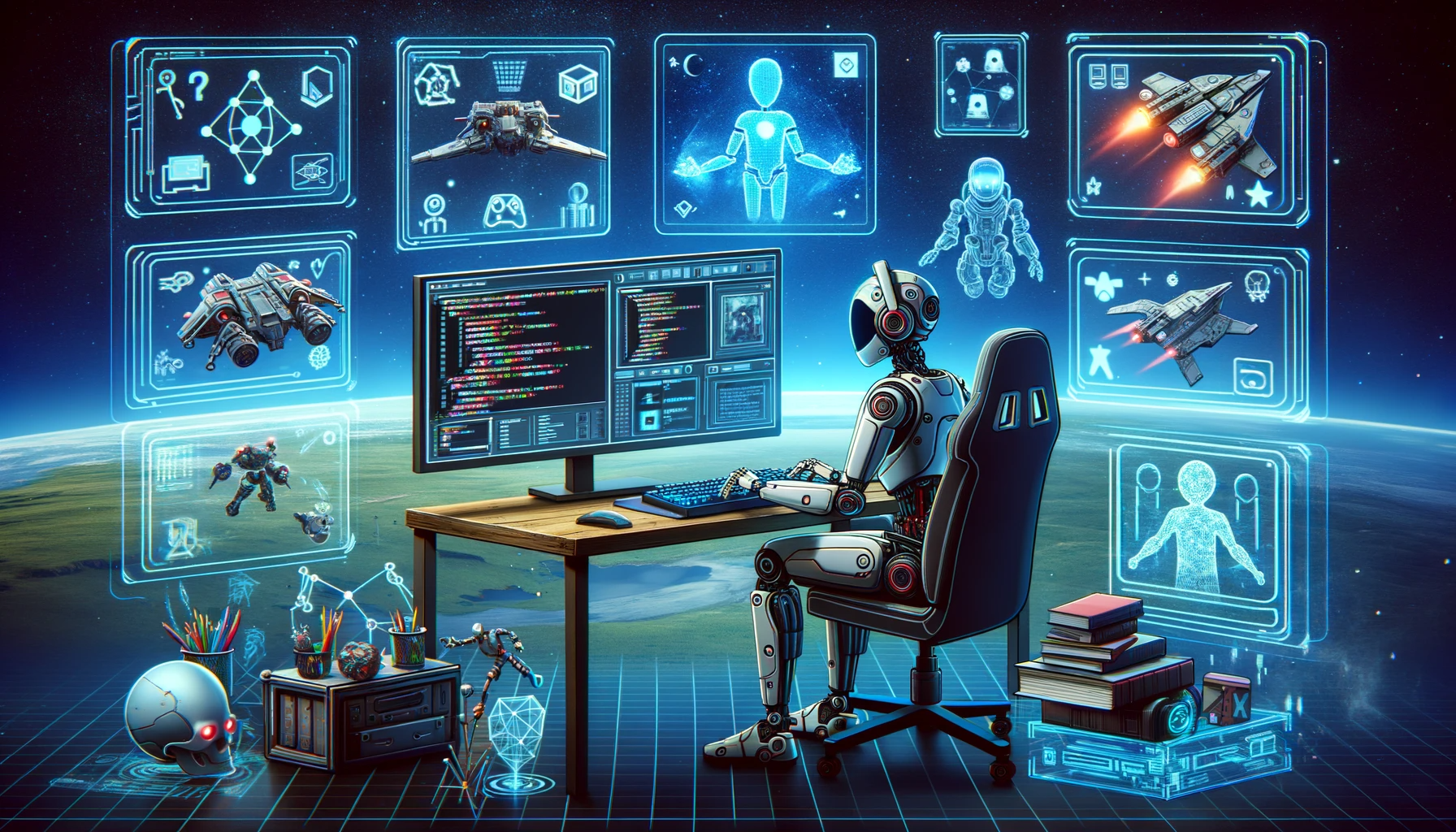The integration of artificial intelligence (AI) in various industries has revolutionized the way we approach problems and create solutions. One such industry that has seen the infusion of AI is the video game industry. While AI has been used to enhance gaming experiences and streamline development processes, the question remains: Can AI create a complete video game by itself?
Game creation with AI: Personal experience
As a writer and an enthusiast of both video games and artificial intelligence, I decided to embark on an experiment to create a complete video game using AI tools available to me. The goal was to utilize AI for ideation, programming, asset creation, and testing.
The ideation process was relatively straightforward, with AI generating a unique game concept based on popular trends. However, when it came to programming, I found that while AI could assist in writing code, it required human intervention to ensure that the code was implemented correctly and that the game mechanics worked as intended. Also the AI tends to give you wrong code that might lead to runtime errors.
Asset creation was another area where AI fell short. While AI-generated 2D backgrounds were sufficient, the 3D models, 2D sprites and animations lacked the quality and detail that a human artist could provide. Also the results were not exactly as expected. I had to compromise on the quality and the end product.
Testing and debugging were perhaps the most challenging aspect of the experiment. While AI could identify some bugs and suggest fixes, it was not capable of providing real-time debugging support or comprehensive testing to ensure that the game was free of issues before release.
In the end, my experiment to create a complete video game using AI was unsuccessful. While AI has the potential to assist in various aspects of game development, it is clear that human creativity, skills, and intervention are still crucial to creating a unique and engaging video game.
Limitations of AI in Game Development:
Despite its potential, AI has several limitations that prevent it from creating a complete video game independently.
- Lack of Creativity: While AI can analyze data and generate ideas, it lacks the creativity and originality of human designers. This is crucial in ensuring that the game is unique and engaging.
- Inability to Create High-Quality Assets (as of now): AI struggles with creating high-quality 3D models, animations, and music, which are essential components of modern video games. However, as technology continues to evolve, it is expected that AI will be able to produce game assets that are on par with those created by human artists.
- Limited Debugging and Testing Capabilities: AI can assist in identifying bugs and suggesting fixes, but real-time debugging support and comprehensive testing still require human intervention.
- Inability to Manage Server-Side Functionalities: AI lacks the capability to manage complex server infrastructures and ensure a seamless multiplayer experience for players.
In conclusion, while AI can assist in various aspects of game development, it is not capable of creating a complete video game independently. Human creativity, skills, and intervention are still crucial in the game development process to create a unique and engaging experience for players. As technology continues to evolve, it is possible that AI will play a more significant role in game development in the future. However, for now, the dream of AI creating a complete video game remains just that – a dream.


